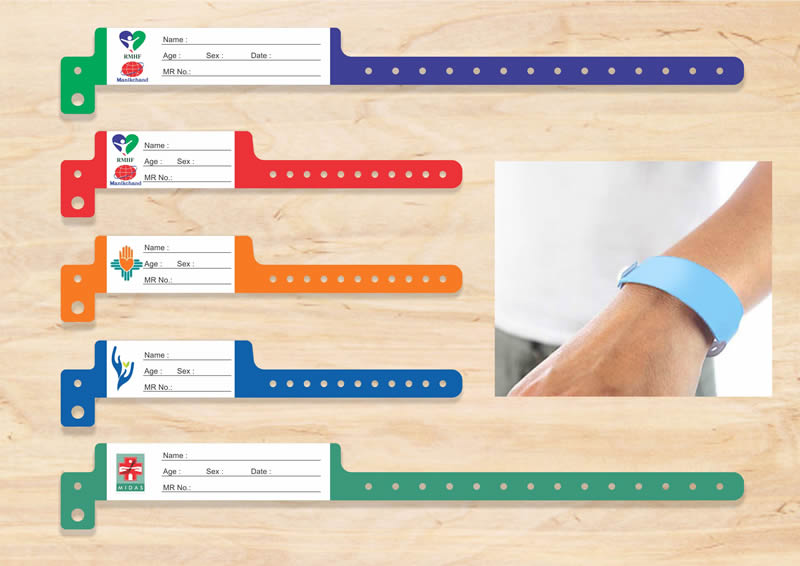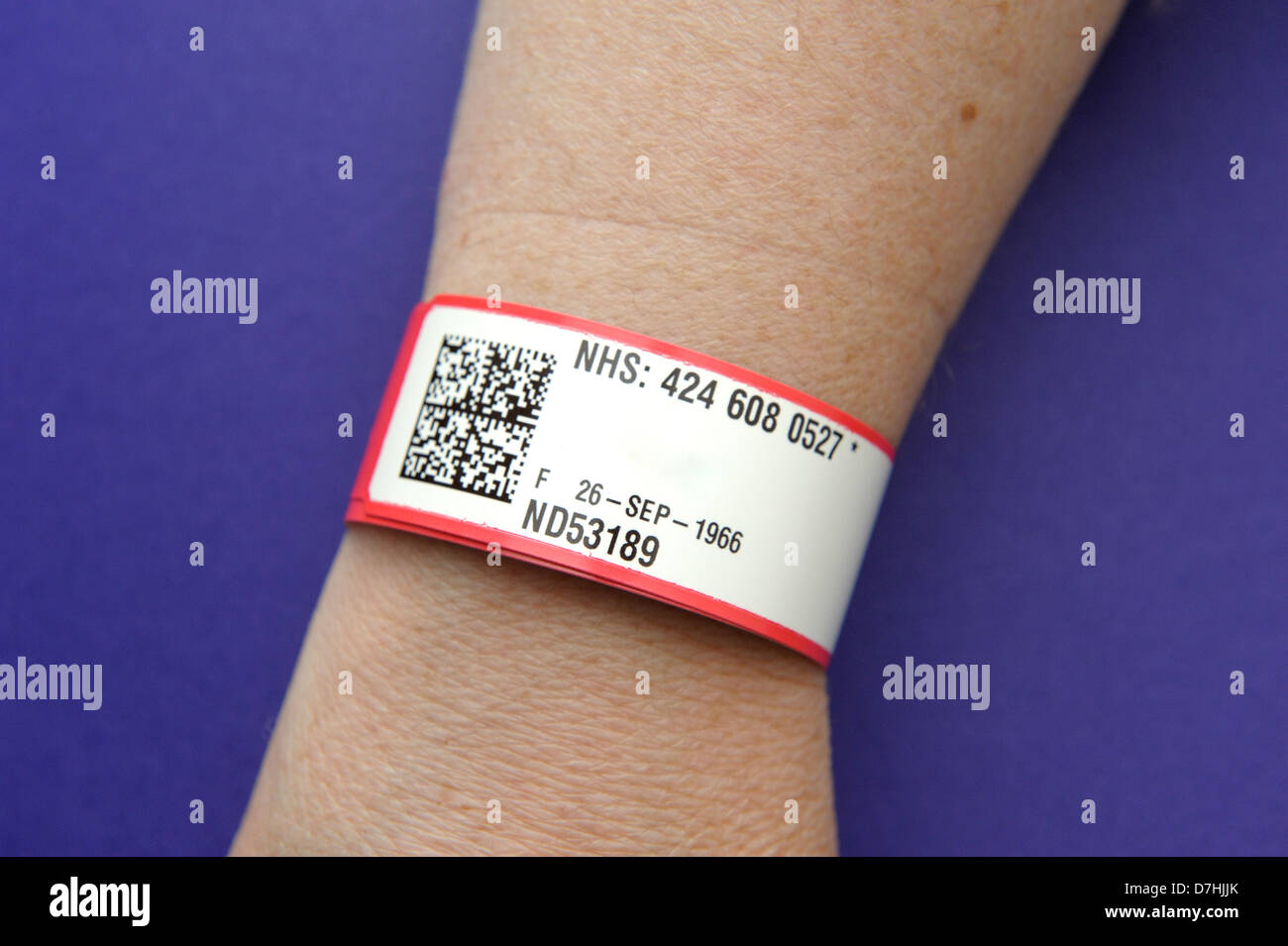Choosing the Right Substances for Your Patient Identification Band: A Step-by-Step Guide
Choosing the Right Substances for Your Patient Identification Band: A Step-by-Step Guide
Blog Article
Exploring the Numerous Kinds Of Patient Identification Band Made Use Of in Clinical Facilities
In the elaborate world of healthcare, the essential function of Patient Identification bands often goes unnoticed. These bands, differing from basic paper wristbands to sophisticated RFID bands, create the backbone of Patient security procedures, ensuring precision in Patient Identification.
Comprehending the Value of Patient Identification Bands
While they might appear like simple devices, Patient Identification bands play a vital duty in clinical centers. These bands offer as a critical device for validating Patient identity, protecting against clinical mistakes connected to misidentification. Patient Identification bands likewise aid in improving administrative jobs, making certain accurate record-keeping and invoicing.
Conventional Paper Wristbands: Their Usage and Limitations
Typical paper wristbands have been a staple in Patient Identification across numerous medical centers. While their use prevails, they nurture certain limitations that may affect their effectiveness in Patient administration. This area will certainly focus on the extent of their application and the inherent disadvantages connected with their usage.
Paper Wristbands: Use Range
In the world of Patient Identification, paper wristbands have long held an essential duty. These bands are usually used in outpatient setups, where the Patient's remain is short-term. In spite of advancements in technology, the humble paper wristband stays a reliable and cost-efficient option for Patient Identification in various health care situations.
Limitations of Paper Wristbands
Despite their extensive use, paper wristbands are not without their drawbacks. Their physical toughness is among the substantial constraints. Exposure to water, sweat, or rough handling can render them unreadable and even cause them to break down. Additionally, paper wristbands often do not have the technological capacities of more contemporary options, such as barcoding or RFID chips, restricting their functionality to merely showing written info. The inability to upgrade or modify the data on the wristband is an additional drawback. If the details is handwritten, clarity can be jeopardized, leading to prospective misidentification. Ultimately, paper wristbands can trigger discomfort or skin inflammation to some patients, particularly when put on for extensive durations.
Barcoded Wristbands: Innovations in Patient Identification
While Patient Identification has actually long been a crucial aspect of healthcare, the advent of barcoded wristbands symbolizes a substantial jump forward. These bands utilize the simpleness of barcoding technology, enabling Patient details to be swiftly checked and accessed. They boost the rate and precision of Patient Identification, reducing the threat of medical mistakes related to misidentification. Barcoded wristbands are cost-effective, easy to generate, and remove handwriting errors usual with manual systems. They are not without constraints. While they offer renovations over standard bands, the barcode can become smudged or worn, rendering it unreadable. Despite this, barcoded wristbands remain an essential device in modern health care setups, symbolizing the crossway of technology and Patient care.
Radio Regularity Identification (RFID) Bands: an Action Towards Futuristic Healthcare
The advancement of Patient Identification bands has caused the introduction of Superhigh frequency Identification (RFID) Bands (patient identification band). These innovative gadgets existing essential benefits for healthcare facilities, using a much more efficient and highly advanced ways of Patient Identification. The execution of RFID in medical care is a considerable step towards an extra advanced method to Patient monitoring and safety and security
Comprehending RFID Bands

RFID Bands: Trick Advantages
Largely, these bands improve Patient security by offering exact, instant Identification, thus minimizing medical mistakes. RFID bands can keep a huge amount of Patient data, including clinical background and allergic reactions, enabling customized care. In general, RFID bands stand for a considerable improvement in Patient Identification technology, benefiting both clients and healthcare service providers.
Applying RFID in Health Care
These bands offer a smooth way to track and recognize patients, guaranteeing their redirected here safety and boosting performance in therapy procedures. RFID bands minimize medical errors by giving exact Patient Identification, which is vital in protecting against misdiagnosis or incorrect medicine administration. Therefore, the execution of RFID bands is a substantial action in the direction of enhancing Patient safety and security and medical care distribution.

Color-Coded Wristbands: Assisting in Quick and Accurate Medical Diagnosis
In the bustling setting of a medical facility, color-coded wristbands have arised as important devices for swift and specific Identification of an individual's medical condition. These wristbands, worn by individuals, carry particular shades that correspond to various medical conditions or standings. This system is designed to provide instant visual signs to health care suppliers, improving Patient safety and security and care top quality.
Strategies for Reliable Application and Management of Patient ID Bands
Attaining optimal use of Patient Identification bands demands a well-structured technique for their application and monitoring. Patient education and learning is also crucial; people need to recognize the purpose of the bands and the need for their consistent wear. It's essential to have a back-up plan in area, such as barcode scanning or biometrics, to guarantee that Patient Identification is never ever endangered.
Final thought
Patient Identification bands are vital in medical centers to guarantee safety and security and accuracy. Reliable implementation and management of these bands can substantially decrease medical mistakes, enhance performance, and improve overall Patient treatment.
These bands, varying from straightforward paper wristbands to sophisticated RFID bands, form the foundation of Patient safety procedures, making sure accuracy in Patient Identification.The development of Patient Identification bands has brought about website here the emergence of Radio Frequency Identification (RFID) Bands. Overall, RFID bands stand for a substantial advancement in Patient Identification technology, benefiting both clients and medical care companies.
RFID bands reduce clinical mistakes by offering precise Patient Identification, which is vital in stopping misdiagnosis or wrong medication administration. Patient education is likewise critical; people must recognize the purpose of the bands and the need for their consistent wear.
Report this page